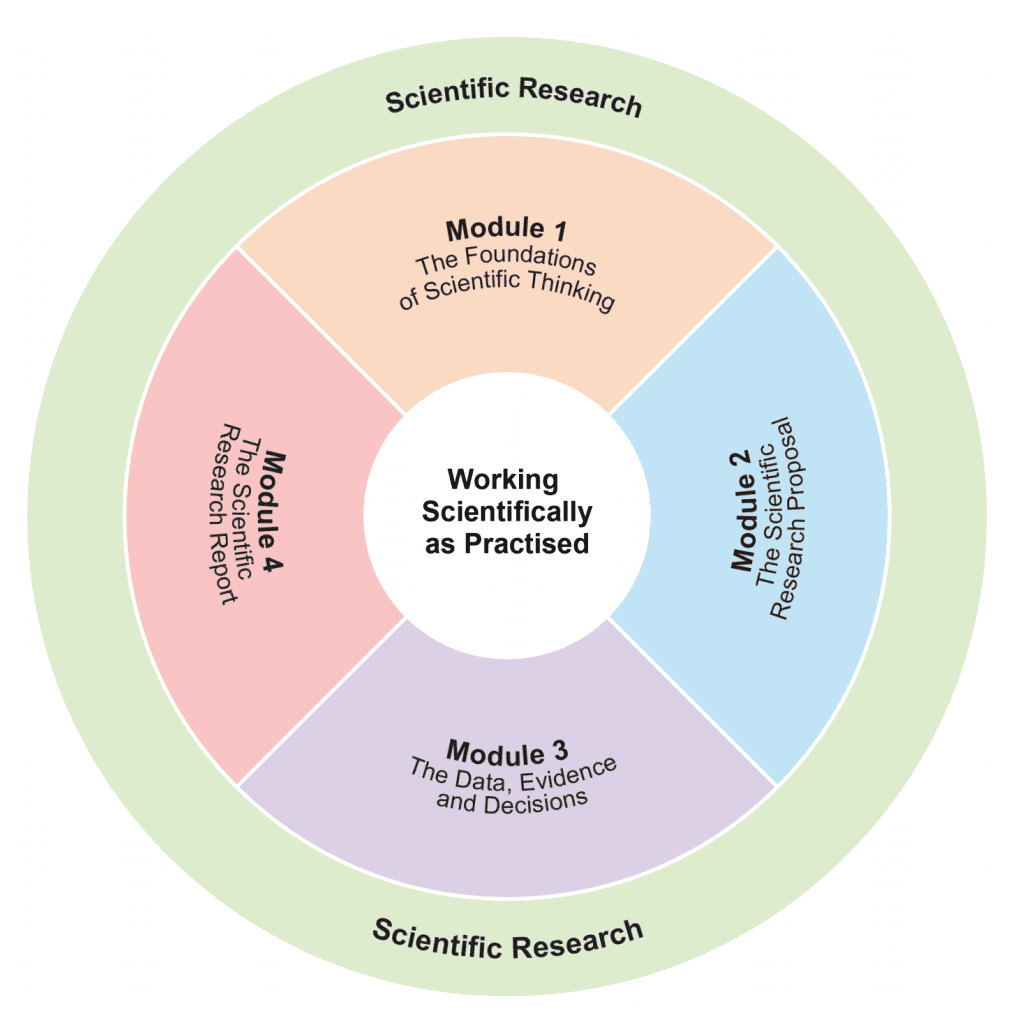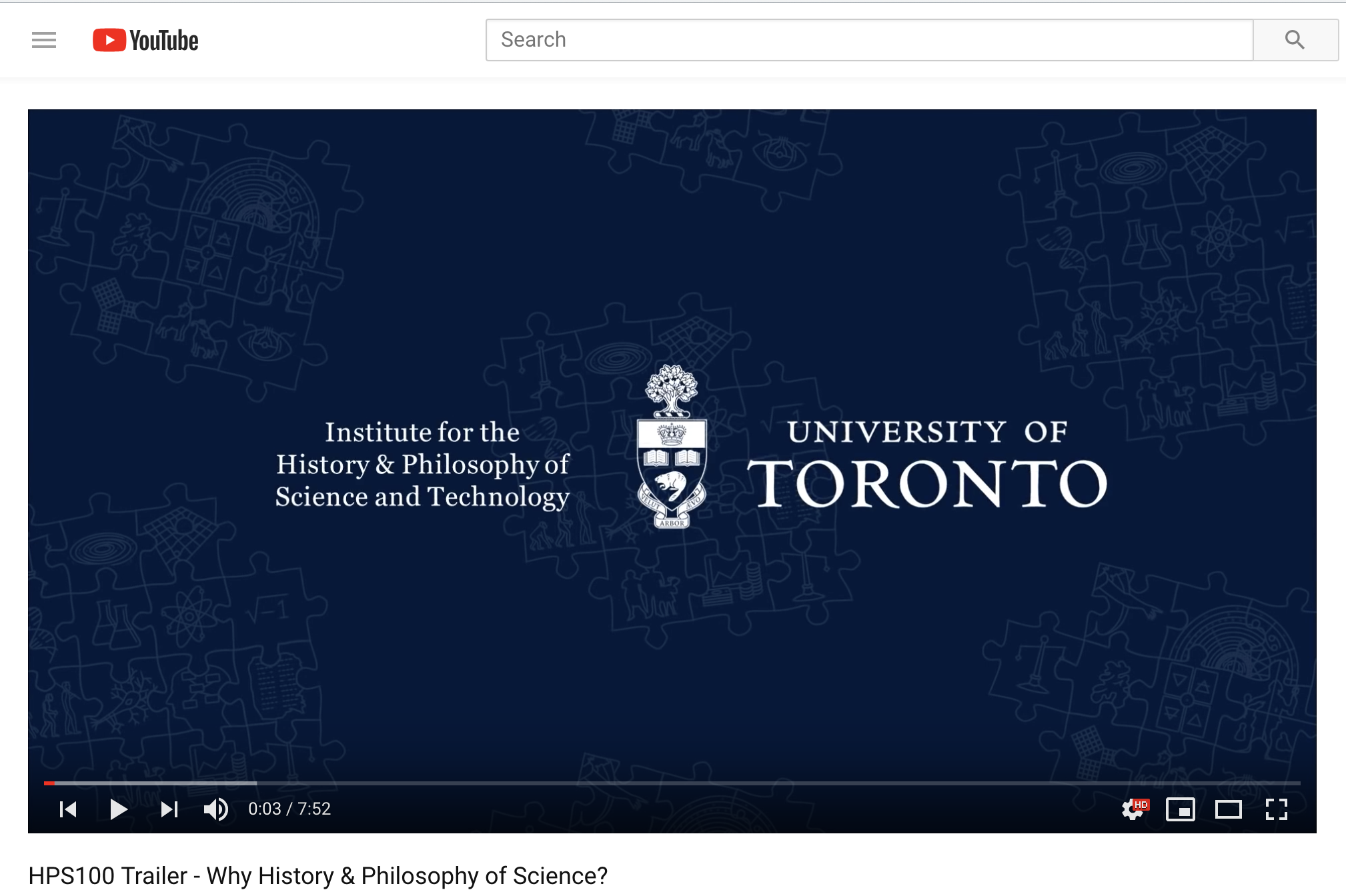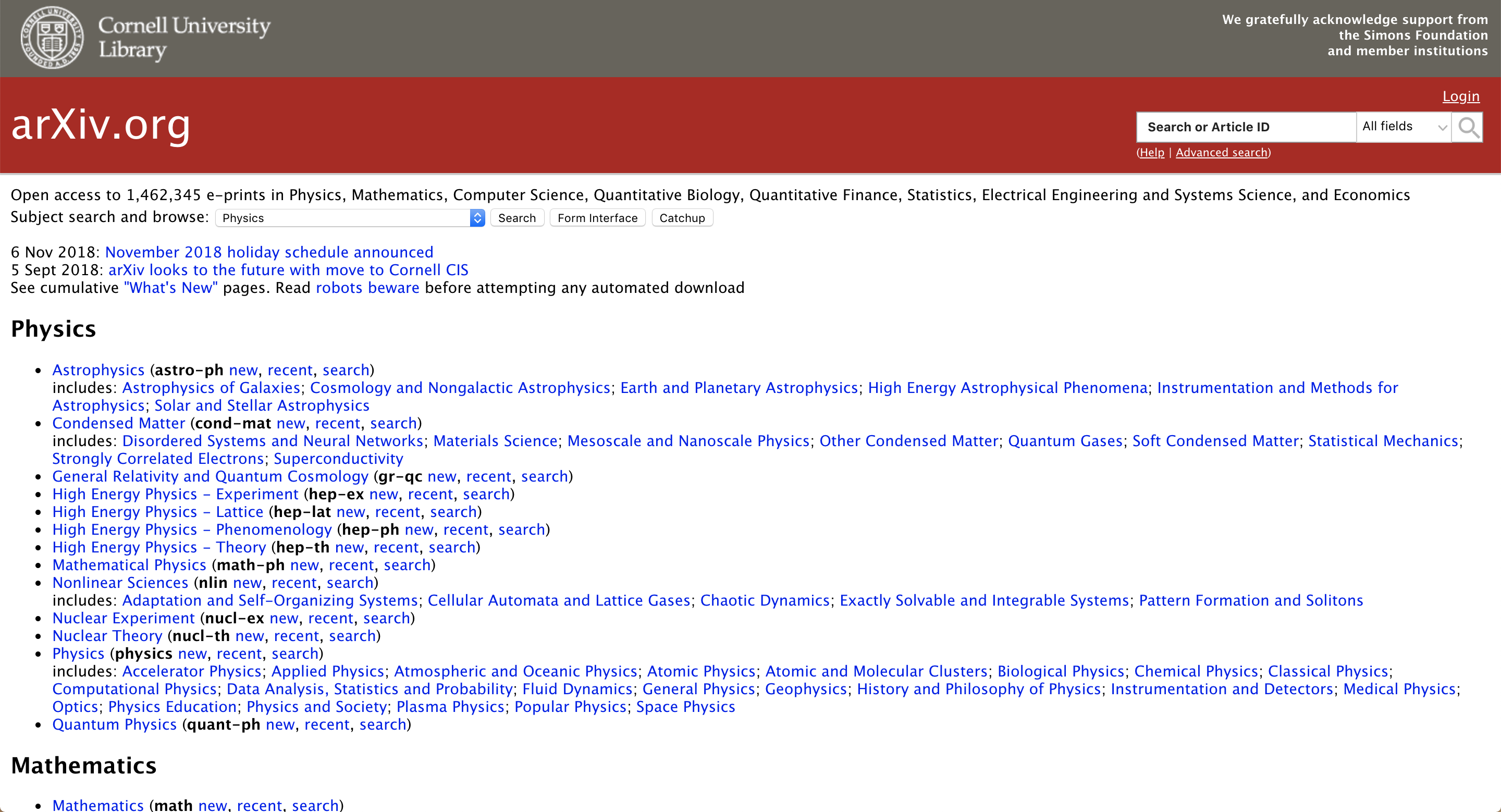
HSC Science Extension…?
We’ve already got Physics, Chemistry, Biology, Earth & Environmental, Investigating Science – what further reaches could we possible extend science out to!? Haven’t we pretty much covered all possibilities now?!?
This article extends you some answers!
The American physicist Albert Michelson (of “Michelson-Morley Experiment” fame) once remarked:
“…future truths of physical science are to be looked for in the sixth decimal place.”
This was back in the 1890s, when people thought Physics was more or less… ‘settled’. There wasn’t much left to discover.
You’d grab a few more precise measurements and we could all slap our knees, let the ink dry and slam down the final report as we throw off our lab coats. Someone else can repurpose those old research labs and we’d all head off to the beach!
This, of course, wasn’t the case.
Ironically, the experiment that slippery-sloped Albert Einstein down the The Special Theory of Relativity rabbit-hole was Michelson’s (and it forced a textbook rewrite on gravity and time and space…).
Meanwhile, Quantum Mechanics burst onto the scene while this was all happening (forcing a textbook rewrite on… all particles).
You can just picture physicists going from beach-going to table-flipping.
The point is, sometimes you don’t know what you don’t know.
This vastly uncharted landscape students see before them today is rife with possibilities like this – and many of them, well, we don’t know what they are from here!
Guessing today’s world, in its details, from a position 20 years ago (‘98) worked out about as well as you might expect. Technologically speaking, how much happened that we couldn’t have known was over the horizon?!
Here’s one thing from the 80s that has a much more significant role in society today… who would’ve guessed this would happen back in 1998!

The unknown unknowns about the next 20 years are dizzying to imagine – but they’re exciting!
While the wold transforms around students as they climb through kindergarten to Year 12, new relevant skillsets pop up all over the place at a rate outpacing curriculum.
However! There are some very, very cool and crucial known knowns, which the new science syllabuses are custom-designed to target!
Here’s the bird’s eye view of HSC Science Extension:
Science Extension is:
- Only available to Year 12 students
- Worth 1 Unit (as with other Extension Units)
- To be taken alongside at least one 2-Unit Science Subject
- Examined with 3 assessments in total, just like all new-syllabus subjects.
Here’s what it looks like per term:
Term 1:
Step 1: Explore the scientific philosophy driving the specific way that science is deliberately done (and this method gets results!).
Step 2: Use insight developed in to formulate a research question (and hypotheses) and plan out a large-scale research project to deeply address this question.
Term 2:
Step 3: Apply your plan to the collection of large amounts of first-hand and second-hand data and perform a deep analysis on it
Term 3:
Step 4: Create a Scientific Research Report (3000 words) accompanied by a Portfolio (which is a record of your organisation, process, reflection and modifications)
Expect to spend 1/3 of the course time exploring the history, philosophy and historical emergence of the scientific process and using this understanding to plan a large-scale investigation.
You’ll then spend the other 2/3 of the course hours on experimenting/data-collecting and report-writing.
This includes establishing a “portfolio” which demonstrates your application of the scientific process, including data-handling skills, reflection and modification to your method and process of experimentation. You will also sit a computer-based examination in the HSC.
OK, got it. So, what’s the point of HSC Science Extension?
The Education Minister says HSC Science Extension aims to:
“promote opportunities to develop the next generation of Nobel Prize winning scientists and world-leading researchers right here in NSW”
That might suggest the course is only for those destined to prodigiously walk the Nobel stage. But you get the spirit of the message – Science Extension is for people who plan to enter industries centred on innovation.
So, tell me about the HSC Science Extension Syllabus!
All new HSC science courses have become much more focused around key concept areas, to empower post-school study.
The new syllabuses build ground-up around central pillars. Old syllabuses were more driven by disjointed snippets.
Science Extension is focussed on skills (i.e. on research/methodology/presentation + communication skills), rather than on content.
However, shooting for focused mastery asks a higher level of discipline of students for them to arrive at the end and collect the rewards!
In other words, be aware that while you’re always building upwards, the new syllabus expects great things from you on the way up.
OK, show me the modules and tell me how to knock them out of the park!

Module 1: The Foundations of Scientific Thinking
Key Inquiry Questions:
Inquiry question: How have philosophical arguments influenced the development of modern scientific research?
In science, we’ve clearly come up with a method of getting to the truth with a track record of producing results:
Follow these knowledge-attainment strategies (the scientific method) and you’ll have planes that fly, electricity-powered homes, robot cars on Mars, countries with nukes and hospitals full of machines and medicines that work.
… OK, so science is a system of techniques with a pretty good tech-producing track record.
But how did we come up with it? Sure, it works – but what was the philosophy that lead us to this way of doing things?
Inquiry question: What currently influences scientific thinking?
OK, so in the past we really had to force ourselves to think like scientists against more tempting knowledge strategies… How can we stay on track?
Module 2: The Scientific Research Proposal
Key Inquiry Questions:
Inquiry question: What are the processes needed for developing a scientific research question and initial hypothesis?
Inquiry question: How is an appropriate methodology developed in order to collect valid and reliable data?
Inquiry question: How is data processed so that it is ready for analysis?
This is where you bring your Module 1 expertise in to develop some of the sections you’ll be presenting in your final product – the report.
The report involves theory, hypothesis-generation, methodology formulation, and presentation of data so that it’s set up for analysis.
Module 3: The Data, Evidence and Decisions
Key Inquiry Questions:
Inquiry question: What tools are used to describe patterns and trends in data?
Inquiry question: How is evidence used to make decisions in the scientific research process?
Inquiry question: How can data modelling help to process, frame and use knowledge obtained from the analysis of data sets?
Here’s where you learn how to master the guts of a scientific report – where the magic happens!
How can I analyse all the data, that I went to such lengths to collect, so that I expose the experimental-theoretical match (or mis-match) in all its glory?!
Module 4: The Research Report
Key Inquiry Questions:
Inquiry question: How are the inferences, generalisations and conclusions derived from valid and reliable data reported?
Here’s where it all comes together in to one cohesive final report that draws solidly (and numerically)-backed conclusions and makes recommendations regarding the theory under analysis through your data-handling from the previous module.
So, should I take HSC Science Extension?
Science Extension is really for anyone looking to exist in STEM fields were cutting edge research will be evolving their practice throughout their career.
Think medical specialists, literally any of the sciences and all types of engineering, as well as students looking to work as researchers in any field.
If you’re a student with research aspirations (in any field), this new course will skill you up in all those skills you’re about to be using at Uni (and the rest of your life, possibly!)
What if I don’t want to be a science researcher, can this course still help me?
Today’s students will likely end up, not just changing career tracks several times, but ultimately working in fields 20 years down the track based around technologies that don’t currently exist.
For example, smartphone “app developer” was a massive field of employment when I left high school. It didn’t exist when I started Year 7, just 6 years earlier.
Science will be at the nexus of the future’s wave-makers. Research will run in to almost every field. The biggest future global challenges will be both created and solved by science and STEM.
If you’re a practicing professional (rather than a researcher/academic), success will mean keeping up with the current research being pumped out by universities worldwide (even teachers do this!). It will be important to know how science is conducted and how tech is research-and-developed.
STEM students at Uni have their lives dominated by lab work, researching academic literature, developing research reports and formulating scientific reports.
Graduates are flooding in to a world where Bachelor’s Degrees are the new baseline.
Students powering onwards into Masters/Honours/PhDs will be using these skills for 5 years or upwards of a decade.
So, start nailing down those skills now – that’s the goal of Science Extension.
Seriously! If you want to be involved with STEM research, get all this stuff laid down now in high school so you don’t have to lay down a new foundation every time you want to build upwards at Uni.
So, how do I get a Band 6 in HSC Science Extension?
Step 1: Treat Module 1 Seriously and also binge on YouTube!
(Didn’t see that coming, did you?)
Module 1 informs the rest of what you do all year.
You’ll be justifying your hypothesis formation which should be grounded deeply in theory.
In fact, “theories” are entire frameworks of interconnected knowledge, laws and observations which “cook-up” hypothesis (predictions in other areas, possibly about things yet to be observed, which function as theory tests!
We’re going to pit our experimental data against our theory-cooked hypotheses in the report, keenly looking for where they deviate).
You’ll be reflecting on the validity of your data collection process (scientific method).
…And more! Everything about why report writing is done the specific exact way that it’s done is informed by Module 1.
If Module 1 is done solidly, you put all the tools at your disposal to unlock mastery of the rest of the year.
The best way to master Module 1 is to find out everything you can about the philosophy of science by going beyond class time.
YouTube is bursting at the seams with fun (and sometimes Morgan Freeman-narrated) documentaries about the history and philosophy of science.
The philosophy of science is a big-picture appreciation type of thing, and this is one subject where binging on YouTube, consuming all the documentaries you can get your hands on, is actually an important way to make all the connections. But make sure you’re doing this in conjunction to textbook reading.
The History and Philosophy of Science is an entire introductory level course offered at Universities worldwide, and these lectures are on YouTube.
Here’s the whole course from the University of Toronto available on Youtube!

Eat this stuff up before entering Module 2, it’s everywhere! (also study in the usual way!) The philosophy underneath the scientific process is really what drives the structure of scientific reports themselves (which you’ll be producing at the end!)
Step 2: Saturate your brain with other people’s scientific reports
Show don’t tell works great for movies. It’s also great to invert it sometimes – See, don’t listen.
You’re going to do a lot of reading about what makes a scientific report hit all the marks (and why this is).
Jump on ARXIV and go to an area of research that piques your curiosity:
This site gives you free PDFs of current scientific research reports across a variety of STEM fields.

Make sure to pick things you’re interested in. Chill out and do a bit of light-reading in your study “down-time”. You can always be teaching your brain helpful things, even if you’re tricking it by enjoying something in a low-stress setting.
Churn through stacks of these papers in a leisurely way but note how all their report sections come together. Look for how their hypotheses are grounded directly by theory; how their data is presented and used to do a detailed evaluation of the theory’s predictive power.
You will gradually get a real feel for why reports are written the way they are – and how you should model your own report.
It’s a real leg-up if you do this during the planning stages of your own investigation. Make sure to always keep in the back of your mind what will be going in to your report sections at the end).
Step 3: Extract every piece of learning you possible can from your Depth Study
You can see the emphasis the redesigned syllabus puts on this research angle, with each science subject having a large depth study in it that requires you to produce a report at a standard which is lightyears ahead of your junior science report-writing.
Your Year 11 depth studies are fantastic miniature practice runs for your this subject and you can learn a lot of lessons from them which are game-changers for your success in Science Extension.
The depth studies deliberately mirror the sort of report writing needed at the university level, just as this course does.
Step 4: Recast the role of class time in your life.
For the rest of your life, your main learning grounds will be outside of class.
Class is a place where you have access to an expert consultant (your teacher) – so use it! Pre-develop your questions. Jump ahead through the textbook and repurpose your class as a revision/understanding-checking session.
This big project is yours – own it!
Are you looking for some extra help with HSC Science in 2019?
We pride ourselves on our inspirational Science coaches and mentors!
We offer tutoring and mentoring for Years K-12 in a large variety of subjects, with personalised lessons conducted one-on-one in your home or at our state of the art campus in Hornsby!
To find out more and get started with an inspirational tutor and mentor get in touch today!
Give us a ring on 1300 267 888, email us at [email protected] or check us out on Facebook!
Adrian Wendeborn is a qualified science and maths teacher with a physics/chemistry double-major degree from USYD and a GDipEd from UQ. Adrian has taught in QLD and NSW and has worked with Art of Smart Education as a campus teacher, tutor, resource developer and Head of Faculty.


